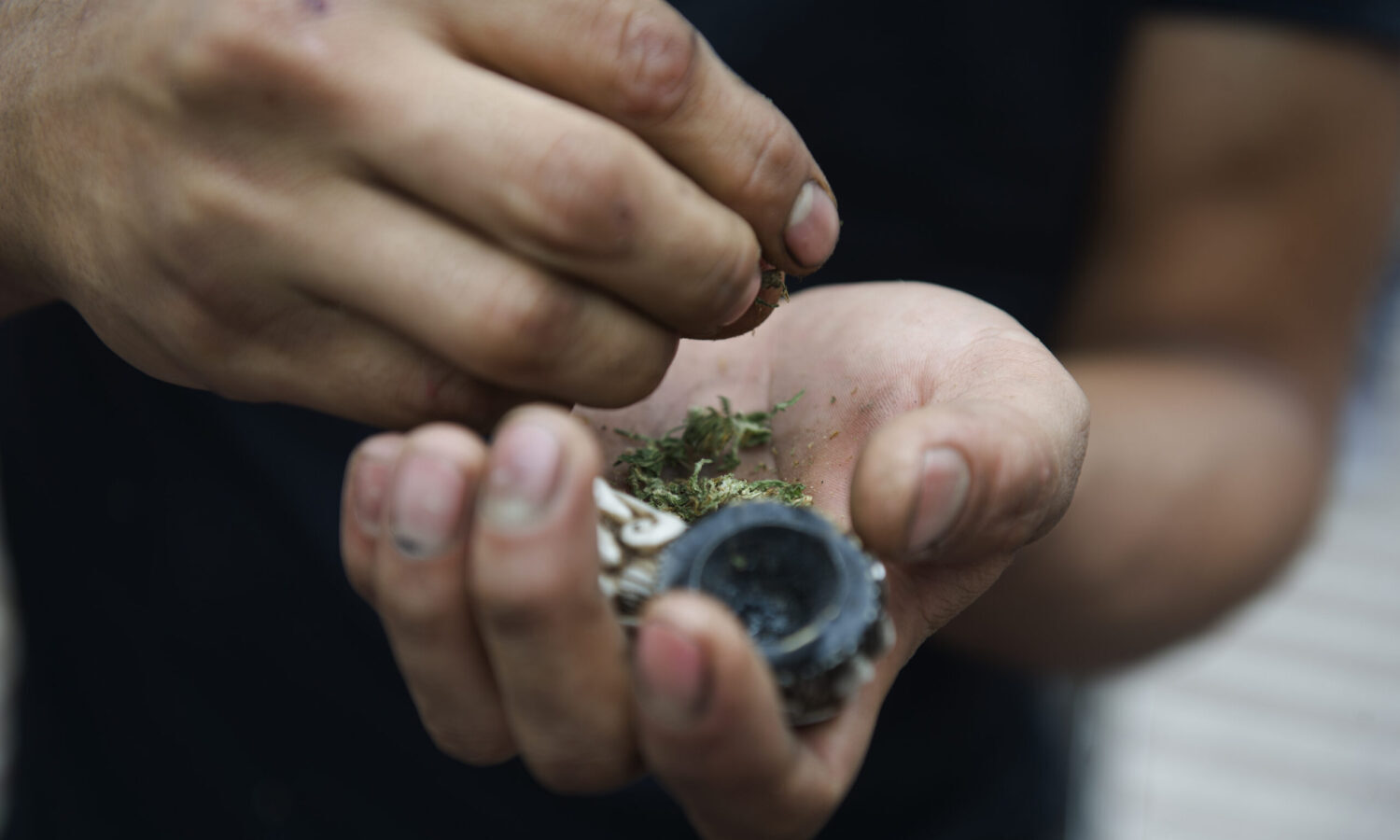
Study: Poisoning from dangerous synthetic cannabinoids is less common in legal cannabis states
Through
Illegal synthetic cannabis, known by many street names like Ak-47, K2, Spice, Scoobie Snacks, Mr. Nice Guy, and 24-Karat Dream, is less commonly used in states that have legal marijuana programs, like a recent one by study conducted by Washington State University confirmed.
The study, published in the Journal of Clinical Toxicology, found a 37% decrease in reports of illegal synthetic cannabinoid poisoning in these states for legal recreational cannabis, writes Medical Express.
“This study demonstrates some potential public health benefits from legalizing and regulating adult use of cannabis,” said study lead author Tracy Klein, associate professor of nursing at WSU. “Based on previous research and this current study, it is apparent that users who have the choice to use a less toxic product might do so.”
Photo by Jorge Alberto Mendoza Mariscal/Getty Images
What are synthetic cannabinoids?
It is important to distinguish between synthetic cannabinoids and the actual marijuana plant as they are far from the same. The name is based on the fact that these synthetic drugs are made up of molecules that bind to the same receptors that cannabinoids like THC, CBD and others actually found in the cannabis plant bind to.
Basically they are similar to THC, but often these synthetic analogs have stronger binding affinity and greater potency to the CB1 receptors, making them toxic. They have been known to cause severe disability and even death.
According to the Centers for Disease Control and Prevention, a 17-year-old boy “went into cardiac arrest after reportedly taking a single ‘puff’ of K2/Spice.”
Study Highlights
The researchers analyzed data from the National Poison Data System from 2016 to 2019, before the COVID outbreak. They categorized the states into three categories: 1) permissive – allowing both medicinal and adult use, 2) medicinal – allowing only medicinal use, and 3) restrictive – banning almost all marijuana use.
In the sample examined, there were 7,600 reports of poisoning related to the use of synthetic cannabinoids, of which up to 65% required medical attention. There were also 61 deaths.
RELATED: This state becomes first in nation to ban synthetic cannabis products: Delta-8 available in July
More than half of those calls for positioning reports (56) were made in states with restrictive marijuana policies, the study found. About 38.6% happened in states with medical cannabis programs, and only 5.5% happened in states with legal recreational cannabis use.
Klein also emphasized that future research is needed to identify the uses of these drugs and the differences between them. For example, the study does not focus on synthetically derived Delta-8.
“We know there are many cannabinoids being developed and on the market — and regulators are struggling to catch up,” Klein said.
Co-authors of the study are Janessa Graves from the WSU College of Nursing, Julie Dilley from the Multnomah County Health Department and the Oregon Healthy Authority, and Dr. Erica Liebelt of the University of Arkansas College of Medicine.
 Photo by Jorge Alberto Mendoza Mariscal via Getty
Photo by Jorge Alberto Mendoza Mariscal via Getty
Why would anyone use synthetic marijuana?
In fact, there are some synthetic cannabinoids that are made purely for medical purposes, such as: B. dronabinol and nabilone. Dronabinol was approved by the FDA in 1985 as Marinol for the treatment of AIDS-related anorexia and later for the treatment of chemotherapy-induced nausea and vomiting. Nabilone is also manufactured and used to treat severe nausea and vomiting caused by cancer drug treatment.
Other illegal synthetic cannabinoids like K2 or Ak-47 have no medical purpose. So why would anyone use them?
RELATED: The danger of synthetic cannabinoids
“These products are made in powder form and could be sprayed on or added to something that looks exactly like natural cannabis. So in a party situation, I could see that someone might inadvertently use this,” Klein said, as reported by CNN Health.
Another issue is testing for these drugs.
“You can’t just test for illegal cannabinoids. Often we only find out if a patient used them because they were hospitalized or because they are dead,” Klein said.
According to the CDC, another reason some people are turning to synthetic cannabinoids is to avoid a positive result on drug screenings conducted as a “condition of employment, in substance abuse treatment programs, or in the criminal justice system.”
This article originally appeared on Benzinga and has been republished with permission.

Post a comment: